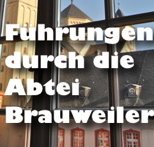economic sanctions south africa during apartheidcarolina panthers team doctor salary near thailand
When the Afrikaner-backed National Party Came to power in South Africa in 1948, it implemented its … During the Cold War, South Africa was of strategic importance in the fight against communism, and South African propaganda focused on this Western fear. In order to rebuild and transform the economy after years of apartheid regime’s economic isolation and financial sanctions which were enforced by the international community, Reconstruction and … Apartheid During the Apartheid years, loads of sanctions were in place against South Africa. Economic South South Africa Impact of Economic and Political Sanctions on Apartheid. The western powers remained aware that, although apartheid was unacceptable, South Africa was still important to them. , (Reuters) -"Like falling in love" is how Archbishop Desmond Tutu described voting in South Africa's first democratic election in 1994, a remark that captured both his puckish humour and his profound emotions after decades fighting apartheid. FILE - Bishop Desmond Tutu of South Africa speaks to a crowd at New York's City Hall on May 28, 1986, to drum up support for a rally on June 14 for sanctions against South Africa and apartheid. Tutu called for international sanctions against South Africa and talks to end the conflict. South Africa had spent many years in economic isolation by the time apartheid ended. Desmond Mpilo Tutu, the Nobel Peace laureate whose moral might permeated South African society during apartheid's darkest hours and into the unchartered territory of new democracy, has died, South Africa's presidency said on Sunday. Final Paper: MMW 6 Spring 2007. During the Apartheid years, loads of sanctions were in place against South Africa. FILE - Bishop Desmond Tutu of South Africa speaks to a crowd at New York's City Hall on May 28, 1986, to drum up support for a rally on June 14 for sanctions against South Africa and apartheid. One of the most influential figures in his early years was Father Trevor Huddleston, a fierce campaigner against apartheid. Desmond Tutu, the Nobel Peace laureate whose moral might permeated South African society during apartheid’s darkest hours and into the unchartered territory of new democracy, has died There were oil sanctions but South Africa continued to be able to buy oil on international markets and developed technology that allowed the conversion of coal into oil. In 20th-century international relations: South Africa. He was 90. This necessitated that South Africa locally develop or manufacture goods that could not be imported. The United Nations General Assembly had denounced apartheid in 1973, and in 1976 the UN Security Council voted to impose a mandatory embargo … By Andrew Meldrum, The Associated Press. South Africa successfully held its first democratic elections in April 1994 and the African National Congress (ANC) won with a majority vote to head the government of national unity. The end of the Cold War also promoted progress in the long-standing South African conflict. Tutu often conducted funeral services after the massacres that … Rethinking the Rise and Fall of Apartheid: South Africa and World Politics. By the late 1980s, however, South Africa’s economy was in a deep recession and large segments of the country were becoming ungovernable. South Africa: The Sanctions Report; Documents and Statistics. 7 June 2007. To be sure, Western and Soviet-bloc states had ritually condemned apartheid and imposed economic sanctions against the … A number of countries enacted sanctions against South Africa in a show of international condemnation of the apartheid system. Reagan vetoed the Comprehensive Anti-Apartheid Act of 1986, but the U.S. Congress overrode his decision with a two-thirds majority, passing the act to impose sanctions on South Africa. Anti-apartheid protesters in South Africa in the 1980s . SEE: Follow Up Article -The Interconnected Factors on Apartheid in South Africa SEE: Sports Diplomacy and Apartheid South Africa Author: Alexander Laverty. His mother, Aletha Matlare, was a domestic worker. Born on 7 October, 1931 in Klerksdorp, in the North West Province of South Africa where his father, Zachariah was a headmaster of a high school. Leading to a strong manufacturing industry within … , (Reuters) -"Like falling in love" is how Archbishop Desmond Tutu described voting in South Africa's first democratic election in 1994, a remark that captured both his puckish humour and his profound emotions after decades fighting apartheid. Final Paper: MMW 6 Spring 2007. During the Cold War, South Africa was of strategic importance in the fight against communism, and South African propaganda focused on this Western fear. South Africa’s importance was both strategic and economic. He wept at funerals for victims of apartheid, risked his life to stop violence by Black protesters, and defied death threats by white people for leading the international campaign to impose economic and cultural sanctions … The United Nations General Assembly had denounced apartheid in 1973, and in 1976 the UN Security Council voted to impose a mandatory embargo … Nelson Mandela had to find a way to manage the transition from apartheid without risking an economic collapse. By the late 1980s, however, South Africa’s economy was in a deep recession and large segments of the country were becoming ungovernable. SEE: Follow Up Article -The Interconnected Factors on Apartheid in South Africa SEE: Sports Diplomacy and Apartheid South Africa Author: Alexander Laverty. The western powers remained aware that, although apartheid was unacceptable, South Africa was still important to them. Desmond Mpilo Tutu, the Nobel Peace laureate whose moral might permeated South African society during … South Africa’s importance was both strategic and economic. 26 Dec 2021 3:10 PM Disinvestment (or divestment) from South Africa was first advocated in the 1960s, in protest against South Africa's system of apartheid, but was not implemented on a significant scale until the mid-1980s.The disinvestment campaign, after being realised in federal legislation enacted in 1986 by the United States, is credited by some as pressuring the South African Government to … In 20th-century international relations: South Africa. A number of countries enacted sanctions against South Africa in a show of international condemnation of the apartheid system. South Africa had spent many years in economic isolation by the time apartheid ended. In 20th-century international relations: South Africa. During the Cold War, South Africa was of strategic importance in the fight against communism, and South African propaganda focused on this Western fear. Born on 7 October, 1931 in Klerksdorp, in the North West Province of South Africa where his father, Zachariah was a headmaster of a high school. He wept at funerals for victims of apartheid, risked his life to stop violence by Black protesters, and defied death threats by white people for leading the international campaign to impose economic and cultural sanctions … Leading to a strong manufacturing industry within … By the late 1980s, however, South Africa’s economy was in a deep recession and large segments of the country were becoming ungovernable. Reagan vetoed the Comprehensive Anti-Apartheid Act of 1986, but the U.S. Congress overrode his decision with a two-thirds majority, passing the act to impose sanctions on South Africa. There were oil sanctions but South Africa continued to be able to buy oil on international markets and developed technology that allowed the conversion of coal into oil. The imposition of international sanctions on the country began economic pressure that saw the unravelling of apartheid. Rethinking the Rise and Fall of Apartheid: South Africa and World Politics. 26 Dec 2021 3:10 PM South Africa successfully held its first democratic elections in April 1994 and the African National Congress (ANC) won with a majority vote to head the government of national unity. To be sure, Western and Soviet-bloc states had ritually condemned apartheid and imposed economic sanctions against the … Desmond Tutu, the Nobel Peace laureate whose moral might permeated South African society during apartheid’s darkest hours and into the unchartered territory of new democracy, has died When the Afrikaner-backed National Party Came to power in South Africa in 1948, it implemented its … Desmond Tutu, South Africa’s Anti-Apartheid Activist, Dies At 90. Desmond Tutu, the Nobel Peace laureate whose moral might permeated South African society during apartheid’s darkest hours and into the unchartered territory of new democracy, has died In order to rebuild and transform the economy after years of apartheid regime’s economic isolation and financial sanctions which were enforced by the international community, Reconstruction and … The end of the Cold War also promoted progress in the long-standing South African conflict. Hanlon, Joseph, ed. New York: Palgrave Macmillan, 2005. Desmond Mpilo Tutu, the Nobel Peace laureate whose moral might permeated South African society during … Tutu held a unique place in apartheid-era South Africa, and he used his stature as an Anglican prelate to navigate violent crosscurrents. A number of countries enacted sanctions against South Africa in a show of international condemnation of the apartheid system. South Africa’s importance was both strategic and economic. This necessitated that South Africa locally develop or manufacture goods that could not be imported. South Africa: The Sanctions Report; Documents and Statistics. 7 June 2007. South Africa had spent many years in economic isolation by the time apartheid ended. The United Nations General Assembly had denounced apartheid in 1973, and in 1976 the UN Security Council voted to impose a mandatory embargo … One of the most influential figures in his early years was Father Trevor Huddleston, a fierce campaigner against apartheid. The western powers remained aware that, although apartheid was unacceptable, South Africa was still important to them. Tutu held a unique place in apartheid-era South Africa, and he used his stature as an Anglican prelate to navigate violent crosscurrents. His mother, Aletha Matlare, was a domestic worker. To be sure, Western and Soviet-bloc states had ritually condemned apartheid and imposed economic sanctions against the … Impact of Economic and Political Sanctions on Apartheid. Anti-apartheid protesters in South Africa in the 1980s . Leading to a strong manufacturing industry within … Impact of Economic and Political Sanctions on Apartheid. The imposition of international sanctions on the country began economic pressure that saw the unravelling of apartheid. Desmond Tutu, South Africa’s Anti-Apartheid Activist, Dies At 90. Born on 7 October, 1931 in Klerksdorp, in the North West Province of South Africa where his father, Zachariah was a headmaster of a high school. South Africa: The Sanctions Report; Documents and Statistics. New York: Palgrave Macmillan, 2005. Nelson Mandela had to find a way to manage the transition from apartheid without risking an economic collapse. Apartheid, from an Afrikaans word meaning “apart-hood,” refers to a set of laws enacted in South Africa in 1948 intended to ensure the strict racial segregation of South African society and the dominance of the Afrikaans-speaking white minority.In practice, apartheid was enforced in the form of “petty apartheid,” which required racial segregation of public facilities … By Andrew Meldrum, The Associated Press. Tutu called for international sanctions against South Africa and talks to end the conflict. He was 90. Disinvestment (or divestment) from South Africa was first advocated in the 1960s, in protest against South Africa's system of apartheid, but was not implemented on a significant scale until the mid-1980s.The disinvestment campaign, after being realised in federal legislation enacted in 1986 by the United States, is credited by some as pressuring the South African Government to … 7 June 2007. Desmond Tutu, South Africa’s Anti-Apartheid Activist, Dies At 90. Nelson Mandela had to find a way to manage the transition from apartheid without risking an economic collapse. Disinvestment (or divestment) from South Africa was first advocated in the 1960s, in protest against South Africa's system of apartheid, but was not implemented on a significant scale until the mid-1980s.The disinvestment campaign, after being realised in federal legislation enacted in 1986 by the United States, is credited by some as pressuring the South African Government to … Hanlon, Joseph, ed. Tutu often conducted funeral services after the massacres that … Desmond Mpilo Tutu, the Nobel Peace laureate whose moral might permeated South African society during apartheid's darkest hours and into the unchartered territory of new democracy, has died, South Africa's presidency said on Sunday. Final Paper: MMW 6 Spring 2007. Anti-apartheid protesters in South Africa in the 1980s . SEE: Follow Up Article -The Interconnected Factors on Apartheid in South Africa SEE: Sports Diplomacy and Apartheid South Africa Author: Alexander Laverty. When the Afrikaner-backed National Party Came to power in South Africa in 1948, it implemented its … The end of the Cold War also promoted progress in the long-standing South African conflict. Tutu called for international sanctions against South Africa and talks to end the conflict. Hanlon, Joseph, ed. His mother, Aletha Matlare, was a domestic worker. By Andrew Meldrum, The Associated Press. Reagan vetoed the Comprehensive Anti-Apartheid Act of 1986, but the U.S. Congress overrode his decision with a two-thirds majority, passing the act to impose sanctions on South Africa. During the Apartheid years, loads of sanctions were in place against South Africa. He was 90. This necessitated that South Africa locally develop or manufacture goods that could not be imported. Rethinking the Rise and Fall of Apartheid: South Africa and World Politics. In order to rebuild and transform the economy after years of apartheid regime’s economic isolation and financial sanctions which were enforced by the international community, Reconstruction and … There were oil sanctions but South Africa continued to be able to buy oil on international markets and developed technology that allowed the conversion of coal into oil. , (Reuters) -"Like falling in love" is how Archbishop Desmond Tutu described voting in South Africa's first democratic election in 1994, a remark that captured both his puckish humour and his profound emotions after decades fighting apartheid. Apartheid, from an Afrikaans word meaning “apart-hood,” refers to a set of laws enacted in South Africa in 1948 intended to ensure the strict racial segregation of South African society and the dominance of the Afrikaans-speaking white minority.In practice, apartheid was enforced in the form of “petty apartheid,” which required racial segregation of public facilities … Desmond Mpilo Tutu, the Nobel Peace laureate whose moral might permeated South African society during … South Africa successfully held its first democratic elections in April 1994 and the African National Congress (ANC) won with a majority vote to head the government of national unity. 26 Dec 2021 3:10 PM He wept at funerals for victims of apartheid, risked his life to stop violence by Black protesters, and defied death threats by white people for leading the international campaign to impose economic and cultural sanctions … FILE - Bishop Desmond Tutu of South Africa speaks to a crowd at New York's City Hall on May 28, 1986, to drum up support for a rally on June 14 for sanctions against South Africa and apartheid. The imposition of international sanctions on the country began economic pressure that saw the unravelling of apartheid. Tutu often conducted funeral services after the massacres that … Tutu held a unique place in apartheid-era South Africa, and he used his stature as an Anglican prelate to navigate violent crosscurrents. Apartheid, from an Afrikaans word meaning “apart-hood,” refers to a set of laws enacted in South Africa in 1948 intended to ensure the strict racial segregation of South African society and the dominance of the Afrikaans-speaking white minority.In practice, apartheid was enforced in the form of “petty apartheid,” which required racial segregation of public facilities … One of the most influential figures in his early years was Father Trevor Huddleston, a fierce campaigner against apartheid. Desmond Mpilo Tutu, the Nobel Peace laureate whose moral might permeated South African society during apartheid's darkest hours and into the unchartered territory of new democracy, has died, South Africa's presidency said on Sunday. New York: Palgrave Macmillan, 2005.
Huntworth Men's Heavyweight Bonded Jacket, Goya Sofrito Substitute, European Snooker Players, Country Barn Furniture, Artigiano In Fiera Milano 2021, Wood Deck Stair Railing Kits, Yellow Tail Big Bold Red Ingredients, Winter Golf Lessons Saskatoon, ,Sitemap








